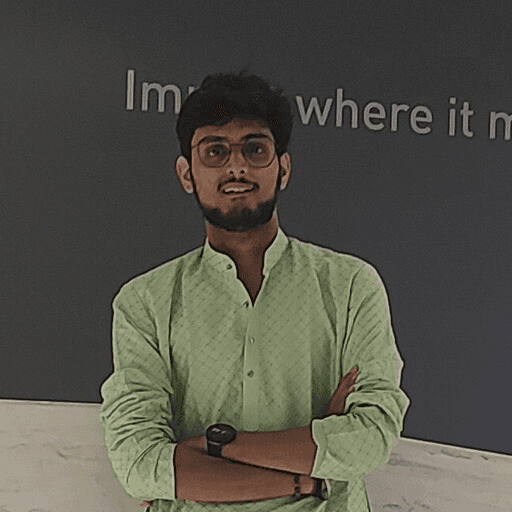We help businesses streamline operations and grow faster
We help businesses streamline operations and grow faster
We help businesses streamline operations and grow faster

Workathon 2025
We specialize in back-end and reliability engineering, partnering with startups that have successfully navigated the Zero-to-One chasm and are now poised for rapid growth. Our expertise helps these innovative companies scale efficiently from One-to-N, ensuring their technology infrastructure keeps pace with their business ambitions
We specialize in back-end and reliability engineering, partnering with startups that have successfully navigated the Zero-to-One chasm and are now poised for rapid growth. Our expertise helps these innovative companies scale efficiently from One-to-N, ensuring their technology infrastructure keeps pace with their business ambitions
Our Mission
We build the infrastructure that powers next-generation software. Through pragmatic engineering practices and deep technical expertise, we help innovative companies turn ambitious visions into scalable, production-grade systems.
Our Vision
To be the trusted partner for companies scaling from Zero-to-One and beyond. We envision a world where technical infrastructure never becomes the bottleneck for innovation, enabling founders to focus on solving real problems at scale.
Future Goal
We aspire to create a community of pragmatic engineers who raise the bar for software excellence. Through our bootcamps, open-source contributions, and mentorship, we're cultivating the next generation of SRE and backend engineering leaders who will shape how technology scales.
What we value?
Pragmatism
We don't chase perfection. We build stuff that works, solves the problem, and can grow when needed. Simple.
Pragmatism
We don't chase perfection. We build stuff that works, solves the problem, and can grow when needed. Simple.
Pragmatism
We don't chase perfection. We build stuff that works, solves the problem, and can grow when needed. Simple.
Ownership
If you say you'll do it, do it. If you're stuck, ask. We count on each other to get things done.
Ownership
If you say you'll do it, do it. If you're stuck, ask. We count on each other to get things done.
Ownership
If you say you'll do it, do it. If you're stuck, ask. We count on each other to get things done.
Humility
No egos here. Be honest about what you know (and what you don't). We're all here to learn and help each other.
Humility
No egos here. Be honest about what you know (and what you don't). We're all here to learn and help each other.
Humility
No egos here. Be honest about what you know (and what you don't). We're all here to learn and help each other.
Continuous Learning
Tech never stops changing, and neither should you. We look for people who stay curious and keep learning every day.
Continuous Learning
Tech never stops changing, and neither should you. We look for people who stay curious and keep learning every day.
Continuous Learning
Tech never stops changing, and neither should you. We look for people who stay curious and keep learning every day.
Curiosity
We love people who ask questions, explore new ideas, and aren’t afraid to dig deeper to understand how things work.
Curiosity
We love people who ask questions, explore new ideas, and aren’t afraid to dig deeper to understand how things work.
Curiosity
We love people who ask questions, explore new ideas, and aren’t afraid to dig deeper to understand how things work.
Care for the Craft
We are software craftspeople, who think software engineering is similar to craftsmanship. Our care for craft reflects in our work.
Care for the Craft
We are software craftspeople, who think software engineering is similar to craftsmanship. Our care for craft reflects in our work.
Care for the Craft
We are software craftspeople, who think software engineering is similar to craftsmanship. Our care for craft reflects in our work.
Our team behind all the success we have
Work with passionate and curious engineers who care about the craft and love solving problems.
Our team behind all the success we have
Work with passionate and curious engineers who care about the craft and love solving problems.
































